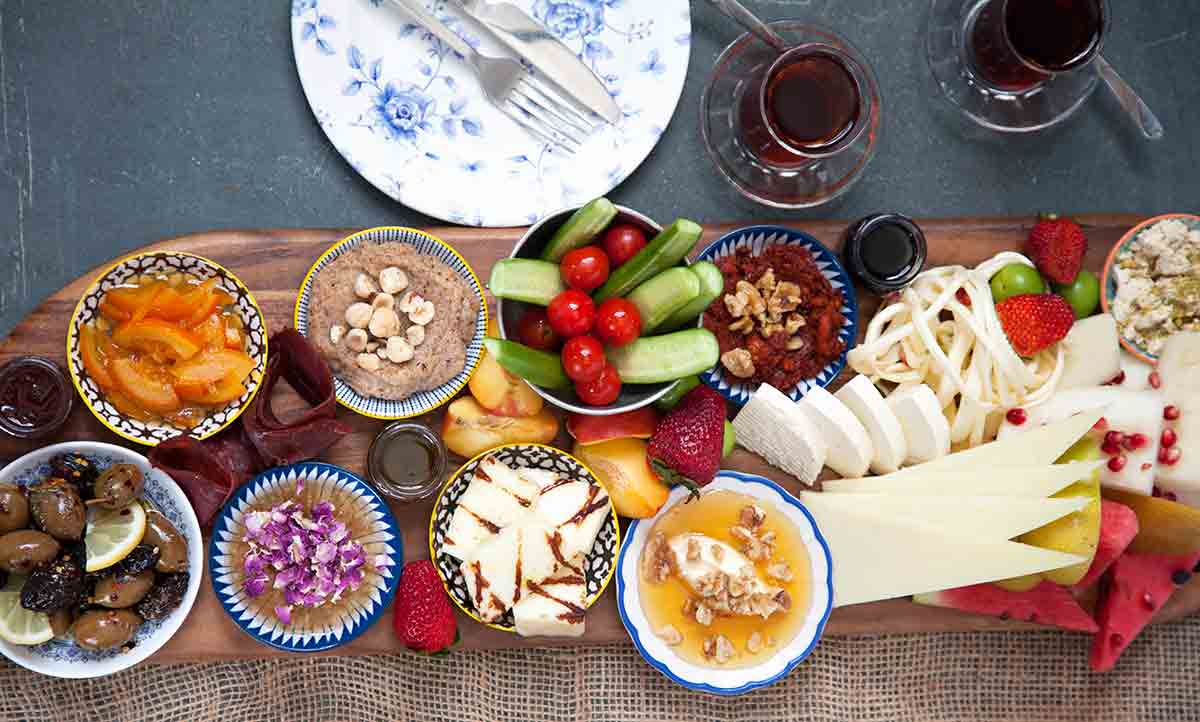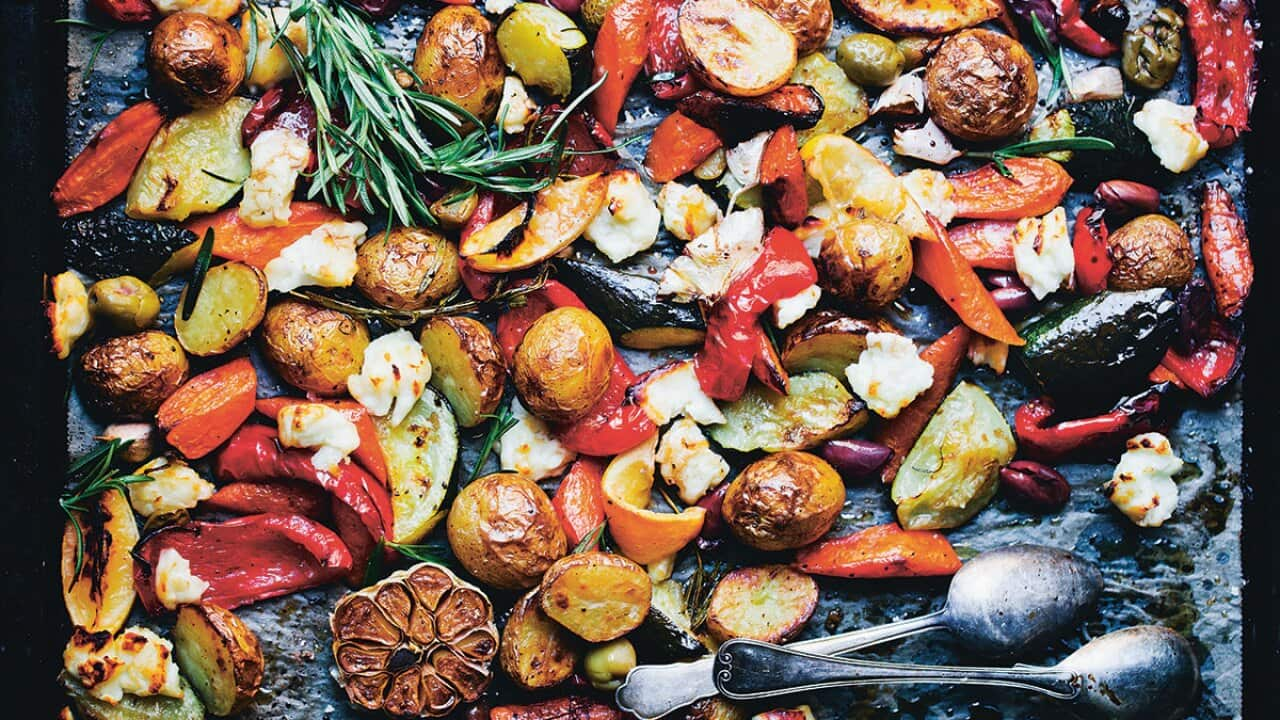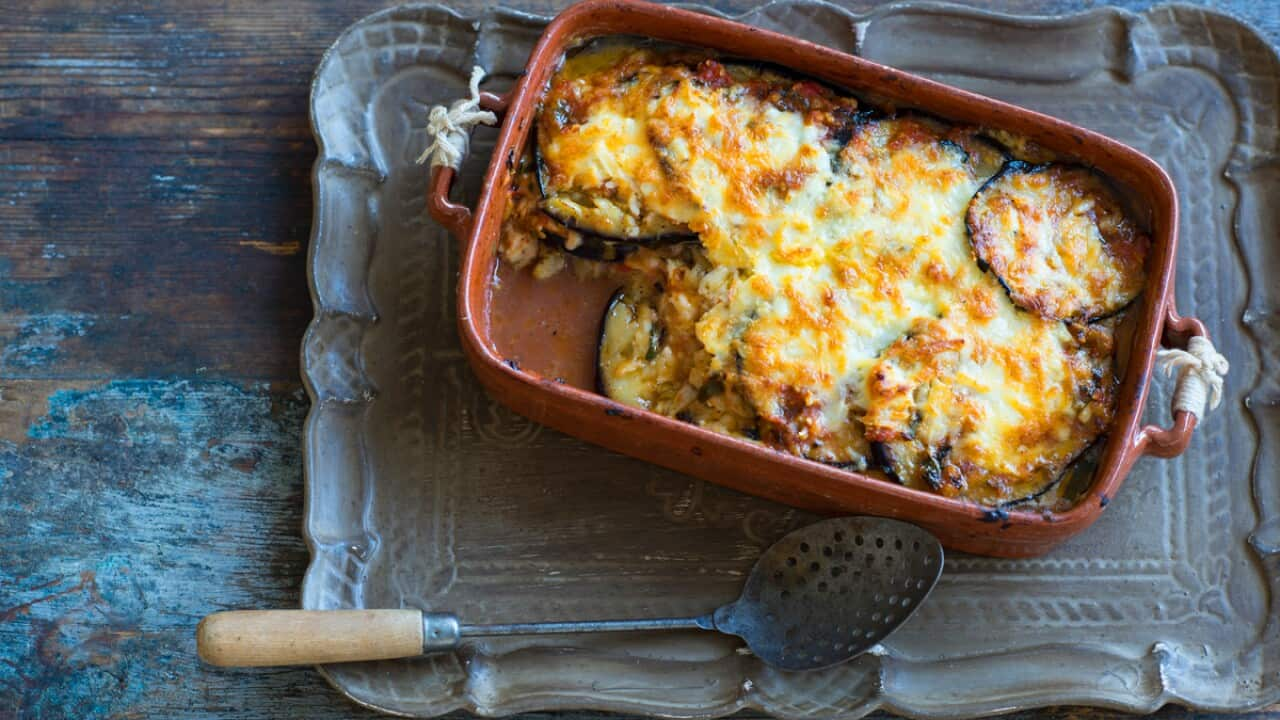It’s probably not every day that cheese makers Louzan Sfarjalani and Aicha Taleb find themselves being shrieked at by an overexcited journalist like a 13-year-old at a One Direction concert, but guess what? Today is one of those days. “Oh my Gosh, I love your cheese!” I literally shout at them. “I mean, I really, really love your cheese,” I shout some more, my voice rising as I think about the salty goodness of their stringy haloum, which has been the highlight of our family Sunday brunches for years now.
They might not be used to the shouting, but the praise should be like water off a duck’s back since they’ve been doing this for so long. Located in Sydney’s Carramar, the family-owned business opened up its doors in 2007, but 42-year-old Sfarjalani has been in the cheese-making game since he was just 15 years old. “We come from a village called Meryata, north of Lebanon and in this part of Lebanon, haloum cheese is very famous,” he explains. “My mother’s family are the leaders of cheese-making so even though I worked in advertising and marketing for a short period, it was a craft that remained in my heart.”
A move to Australia, a marriage to Taleb and two years of working as a production manager for another cheese company followed, but Sfarjalani realised his heritage (not to mention his passion for his family business) beckoned. A decade later, the happy couple have two beautiful children and their third “baby”, Assala, is making a name for itself nation-wide for its range of traditional and speciality cheeses such as the aforementioned stingy haloum, country cheese, Akawi cheese, shanklish and other products such as halawet el riz and samneh.
And if you are wondering about about terminology, haloum is a less salty Mediterranean style, while Greek-style haloumi has a sharper, saltier taste. Now, Assala is not the only cheese-maker specialising in stringy haloum (Chataura Dairy Products is also a pretty major player) but it’s probably the most well-known and Sfarjalani has an opinion on why it’s become such a popular product. “These cheeses are normally very salty and you have to desalinate before consuming,” he admits “But our cheese products are low in salt content, yet the flavour and the taste is still the same as you would expect it to be after the desalination process.” Simply put, the cheese is ready to eat once it’s pulled from the packaging.
Now, Assala is not the only cheese-maker specialising in stringy haloum (Chataura Dairy Products is also a pretty major player) but it’s probably the most well-known and Sfarjalani has an opinion on why it’s become such a popular product. “These cheeses are normally very salty and you have to desalinate before consuming,” he admits “But our cheese products are low in salt content, yet the flavour and the taste is still the same as you would expect it to be after the desalination process.” Simply put, the cheese is ready to eat once it’s pulled from the packaging.

Aicha Taleb and Louzan Sfarjalani make traditional dairy products, including the popular stringy haloum Source: Assala
I’m far from alone in my love for the cheese, with stringy haloum popping up on menus across the country, from in Sydney’s East, which features the cheese in a salad, to acclaimed chef Somer Sivrioǧlu’s two restaurants, and , the former incorporating the cheese in their infamous breakfast board, and the latter, as stuffing in calamari dolma (along with three other Turkish-style cheeses). “When we first started serving it, a lot of people used to ask what it was, but they’re getting more familiar with it now,” says Sivrioǧlu, who adds he personally loves the cheese because it has a similar texture and flavour to ôrgű peyniri (knitted cheese) – one of his favourite cheeses back in Turkey. “The great thing about the stringy haloumi also is that it’s a lot less salty than traditional haloumi, you can eat it raw and it also looks great on the plate as part of a dish.”
“When we first started serving it, a lot of people used to ask what it was, but they’re getting more familiar with it now,” says Sivrioǧlu, who adds he personally loves the cheese because it has a similar texture and flavour to ôrgű peyniri (knitted cheese) – one of his favourite cheeses back in Turkey. “The great thing about the stringy haloumi also is that it’s a lot less salty than traditional haloumi, you can eat it raw and it also looks great on the plate as part of a dish.”

The breakfast board at Efendy in Sydney features Assala's haloum Source: Efendy
The secret to making the product less salty is time, says Taleb, who reveals that it takes a whole day just to make the fresh curd. “The curd is then stretched and cooked ,adding certain rennet and raising the temperature to a particular degree to make the curd combine together to achieve the cheese that you then make into different shapes and styles,” she says. Each style of haloum, be it braided, stringy or twisted, is then processed differently and placed in a cold, salty brine to achieve a variety of flavours and textures. “At least 70 per cent of the processes involve manual and physical work and the making of haloum cheese depends highly on years of experiences and passion to cheese-making,” adds Taleb.
Currently, Assala supplies the local market across Sydney and maintain contracts with interstate customers from Brisbane to Adelaide, but their stringy haloum also remains a firm favourite on their own dining table. Explaining that it goes best with Lebanese bread, cucumber and tomatoes, topped over salads, or served with crackers and watermelon, Taleb says it’s their staple food for morning and dinner. “It’s in the kids lunchboxes, it’s on our pizzas and it’s a quick snack solution when we’re at the beach,” she says. “Actually, now that I think about it, when it comes to stringy haloum, the only limit is your imagination.”








